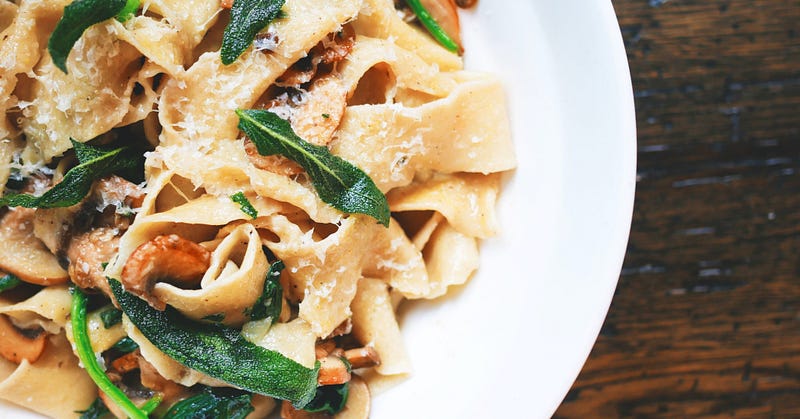The Impact of AI on Your Diet: Revolutionizing Food Science
Written on
Chapter 1: Transforming Food Science with AI
Food science has evolved significantly from the traditional Home Economics classes of previous generations. Today, we can enjoy delicious meals while maintaining better health than ever. Nonetheless, some critics argue that these advancements have led to the loss of vital foods that were more nutritious. Artificial Intelligence (AI) may hold the key to addressing this concern.
AI has been utilized in various fields, including autonomous vehicles, healthcare advancements, drones, and virtual assistants. Now, this technology is being harnessed within food science to develop more flavorful, nutritious foods with reduced calorie counts.
AI's Role in Food Science
AI has the potential to transform the food industry in profound ways. By enhancing efficiency in various sectors, AI is expected to bring similar benefits to food science. One notable impact of AI on your diet is its ability to boost the nutritional content of foods while cutting down on calories. Through machine learning, AI can evaluate which foods offer the highest nutritional value and recommend healthier substitutes for individuals who typically consume less-nutritious options.
Furthermore, AI can streamline food preparation by automating mundane or tedious tasks like chopping vegetables, mincing garlic, or peeling potatoes. It also holds promise for creating tastier food products, particularly for individuals with gluten sensitivities or celiac disease. Some researchers are optimistic that AI can significantly contribute to developing new, delicious, and nutrient-rich foods.
How AI Can Influence Your Eating Habits
Research indicates that boredom often drives unhealthy eating habits, pushing individuals toward high-calorie options. AI is beginning to shift our perceptions of food and dieting. By considering aspects like mood and personal dietary preferences, AI can help shape healthier choices.
For instance, a recent study employed machine learning to devise a weight loss program tailored for overweight adults. This AI-driven approach calculated the appropriate caloric intake for each individual based on their height, age, gender, activity levels, and environmental factors. Such advancements could fundamentally alter how individuals approach food and their dietary choices.
In the near future, AI may predict your food preferences and needs without explicit input. This capability could reduce decision fatigue when selecting meals, potentially becoming a standard feature in restaurants where AI suggests dishes that align with your dietary requirements.
A study also utilized AI to analyze eating behaviors linked to binge eating. By employing a machine learning decision tree, researchers assessed how different eating patterns could differentiate between individuals experiencing recurrent binge-eating episodes and those who do not.
How AI Can Promote Healthier Living
For many, the foundation of a healthy lifestyle lies in a well-balanced diet. However, when your diet lacks nutritional value, AI can offer intriguing solutions. It has the potential to lower calorie content in foods without sacrificing taste. Researchers are currently experimenting with calorie-free desserts, low-sugar jams, and reduced-calorie sauces. Additionally, AI enables scientists to tackle various components of food simultaneously, resulting in healthier meals with improved flavor profiles.

AI and the Future of Our Food
The food industry wields significant influence globally, impacting everything from agricultural practices to consumer purchasing habits. AI is poised to enhance every facet of this industry, making food healthier and more enjoyable than ever. Its applications range from managing crop production and analyzing nutritional data to streamlining marketing efforts for farmers.
Unbeknownst to many, we've been benefiting from AI technology in food for years, particularly during the global pandemic. Countless individuals have enjoyed nutritious meals delivered conveniently to their homes, requiring little effort beyond simple preparation.
Conclusion
The future of food science has arrived, presenting opportunities to improve both your diet and daily life. AI is already making strides within the food industry, and while we are still in the early stages of this revolution, its potential to reshape our eating habits is immense.
Thank you for taking the time to read this piece. If you enjoy my articles, personal anecdotes, and poetry, please consider sharing them. Subscribe for updates via email or support my work on Ko-fi.

The Future of Food AI
The first video, "Food AI Co-Lab: AI and The Future of Food," explores the intersection of AI technology and food science, discussing potential advancements and innovations.
Future Foods: Science and Eating
The second video, "Future Foods: How Modern Science is Transforming the Way We Eat," features Dr. D. J. McClements discussing how science is shaping our dietary habits and food options.